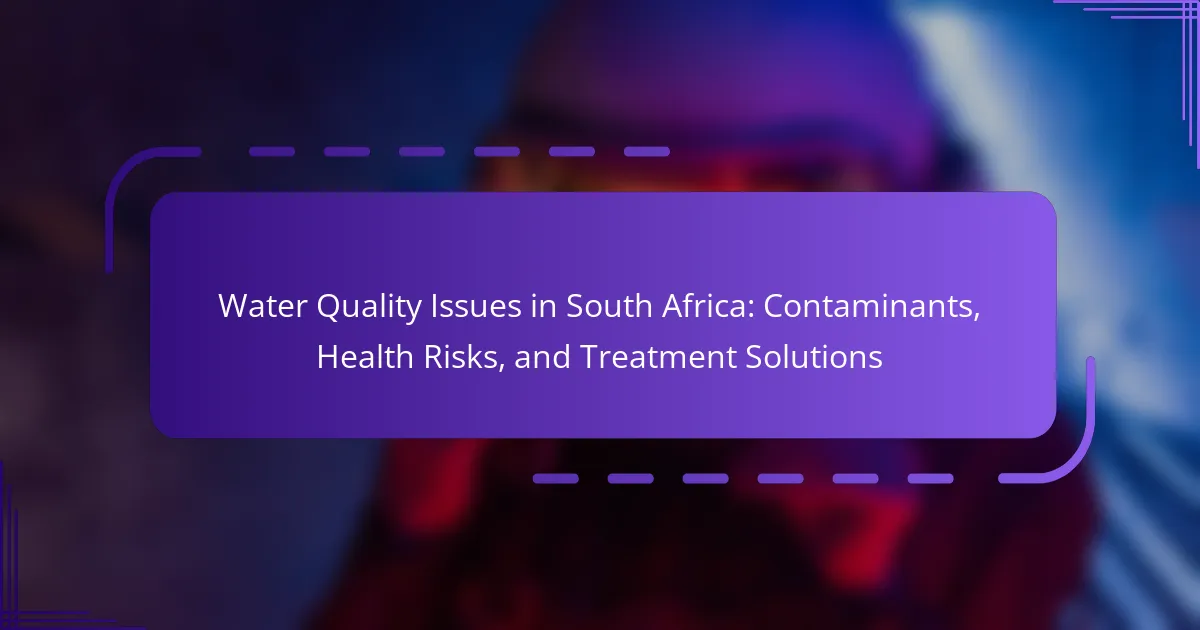Water quality in South Africa is significantly impacted by contamination from pollutants, inadequate sanitation, and water scarcity. Key pollutants include heavy metals, pathogens, and agricultural runoff, which compromise the safety of water sources and contribute to the prevalence of waterborne diseases. Regular assessment methods, including physical, chemical, and biological testing, reveal that many water sources […]
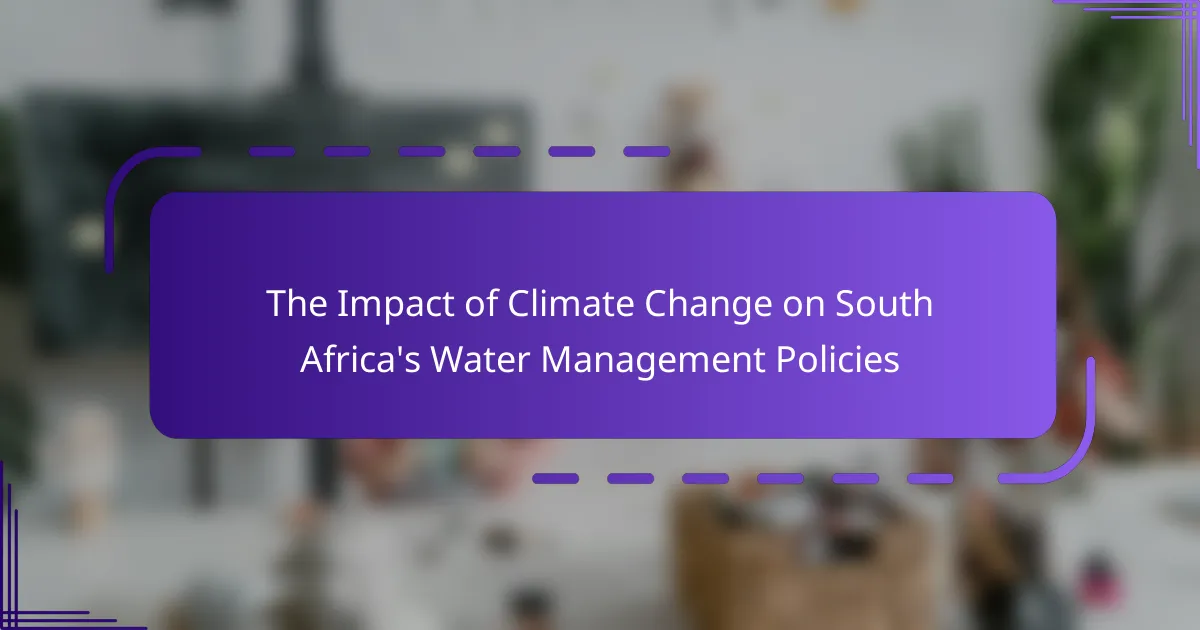
The Impact of Climate Change on South Africa’s Water Management Policies
Climate change is a critical factor influencing South Africa’s water management policies, resulting in increased temperatures and altered rainfall patterns that contribute to water scarcity. This scarcity directly impacts agricultural productivity and urban water supply, prompting government revisions of policies aimed at enhancing water conservation and infrastructure. Key strategies include investing in water recycling, rainwater […]
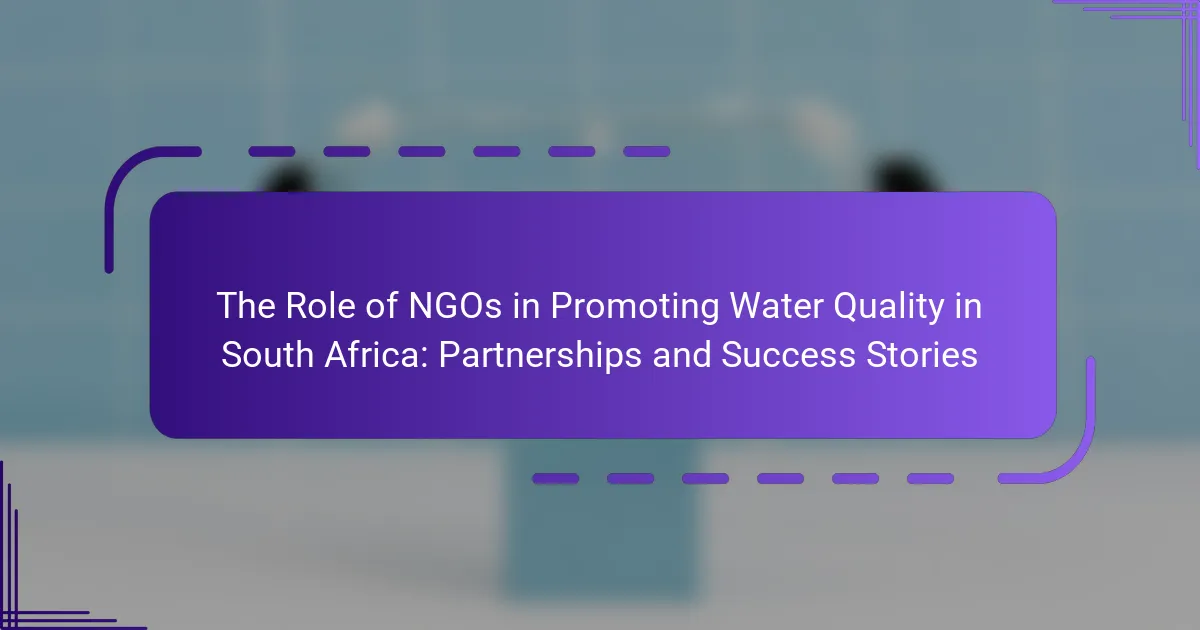
The Role of NGOs in Promoting Water Quality in South Africa: Partnerships and Success Stories
Non-Governmental Organizations (NGOs) are pivotal in enhancing water quality in South Africa through advocacy, education, and community engagement. They collaborate with local communities to implement sustainable water management practices and conduct research to monitor water quality and identify pollution sources. Successful initiatives by organizations such as the Water Research Commission, Endangered Wildlife Trust, South African […]
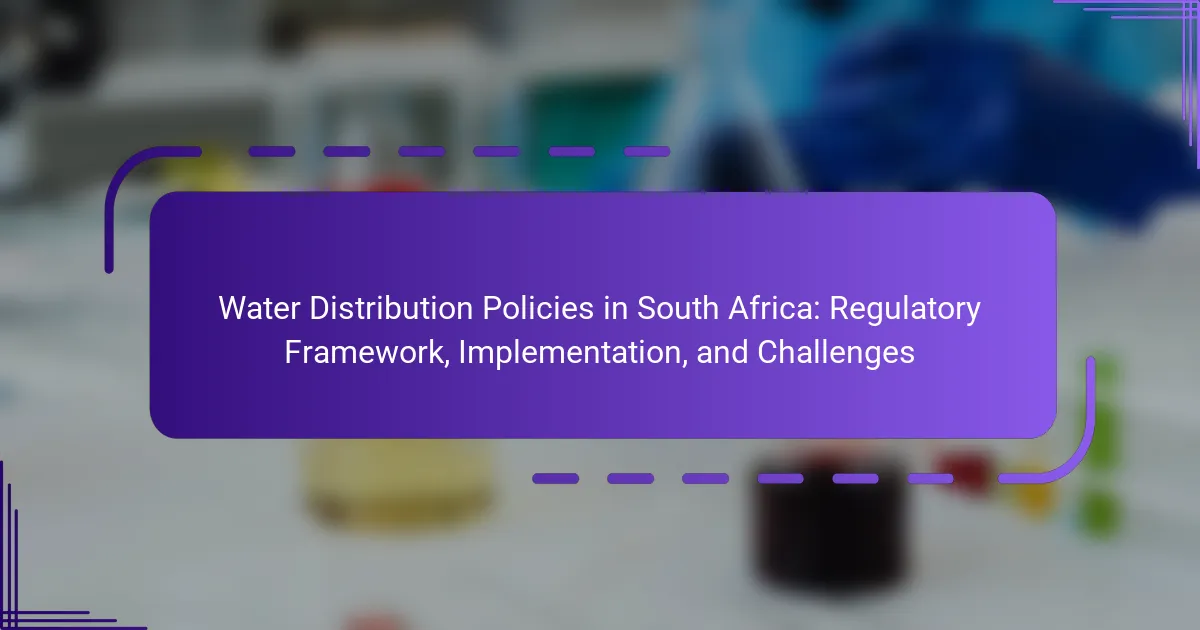
Water Distribution Policies in South Africa: Regulatory Framework, Implementation, and Challenges
Water Distribution Policies in South Africa encompass regulatory frameworks, institutional arrangements, and infrastructure development crucial for equitable access to water and sustainable resource management. The regulatory frameworks provide legal guidelines, while institutional arrangements clarify stakeholder roles, including government and private entities. Infrastructure development focuses on constructing and maintaining water supply systems, addressing challenges such as […]
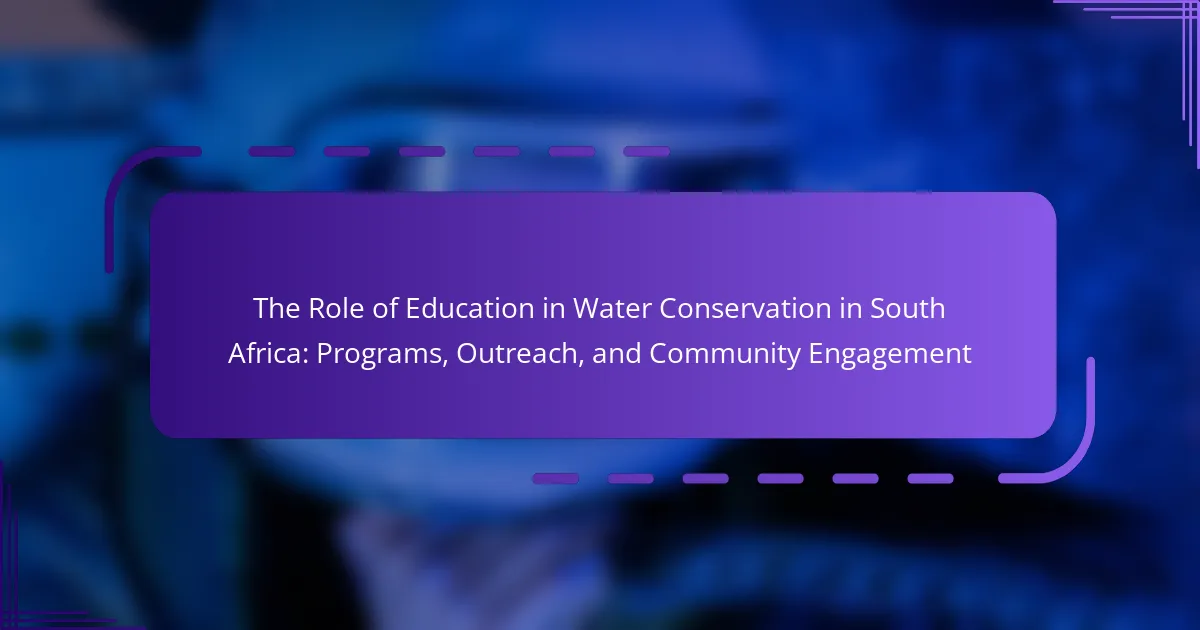
The Role of Education in Water Conservation in South Africa: Programs, Outreach, and Community Engagement
Education is a vital component in promoting water conservation in South Africa, influencing community awareness and sustainable practices. Various educational programs, such as the “Water Wise” initiative and “Catchment Management” efforts, aim to enhance understanding of water scarcity and responsible usage among individuals and communities. The Department of Water and Sanitation supports outreach programs that […]
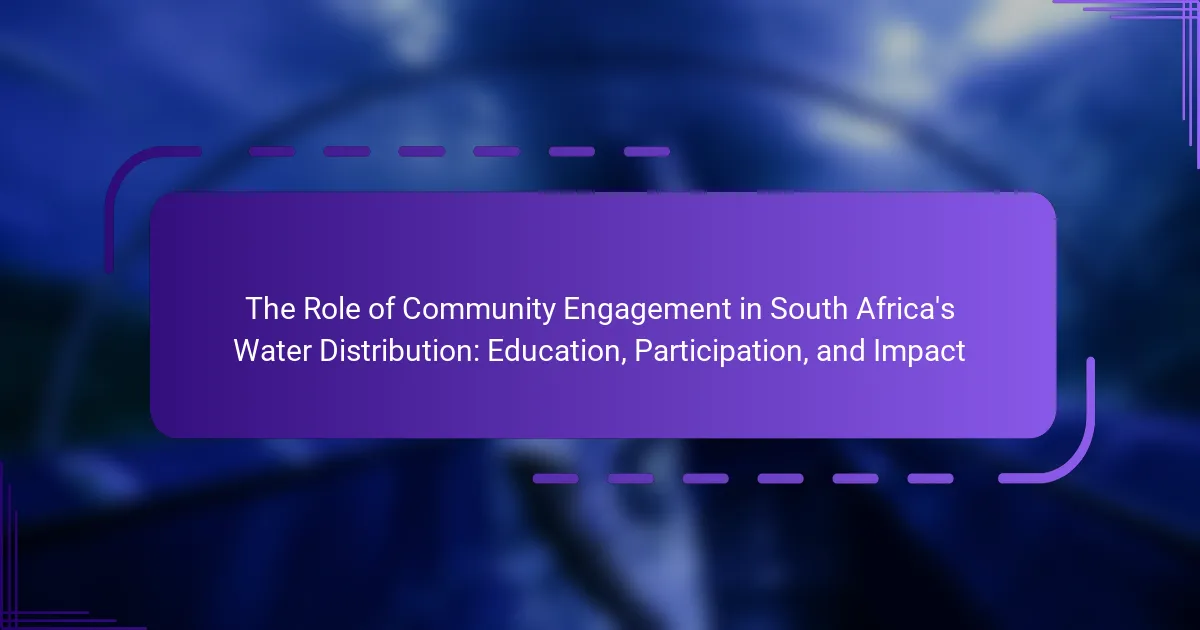
The Role of Community Engagement in South Africa’s Water Distribution: Education, Participation, and Impact
Community engagement is a vital component of water distribution in South Africa, facilitating collaboration between local communities and water authorities. This collaboration enhances transparency, accountability, and effectiveness in water management practices. Engaged communities can identify specific local needs, promote sustainable practices, and participate in decision-making processes, leading to improved water service delivery. Strategies such as […]
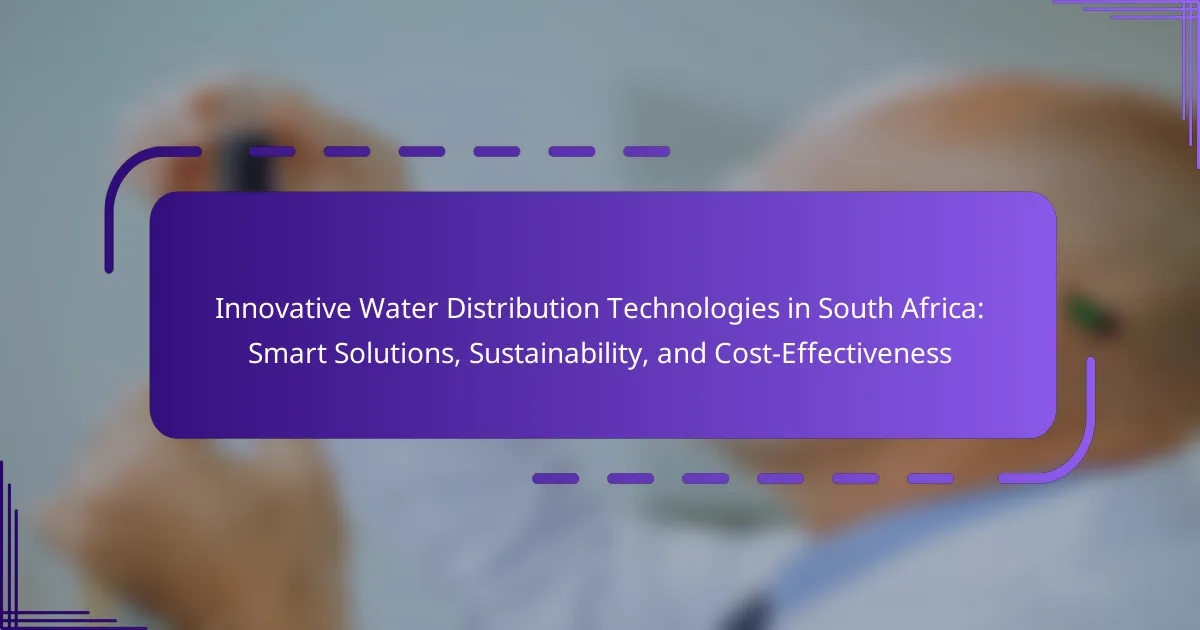
Innovative Water Distribution Technologies in South Africa: Smart Solutions, Sustainability, and Cost-Effectiveness
Innovative water distribution technologies in South Africa focus on smart meters, pressure management systems, and rainwater harvesting. These technologies enhance efficiency, reduce water loss, and promote sustainability in water management, addressing the critical issue of water scarcity affecting over 30% of the population. Smart solutions, including advanced metering infrastructure and automated leak detection, contribute to […]
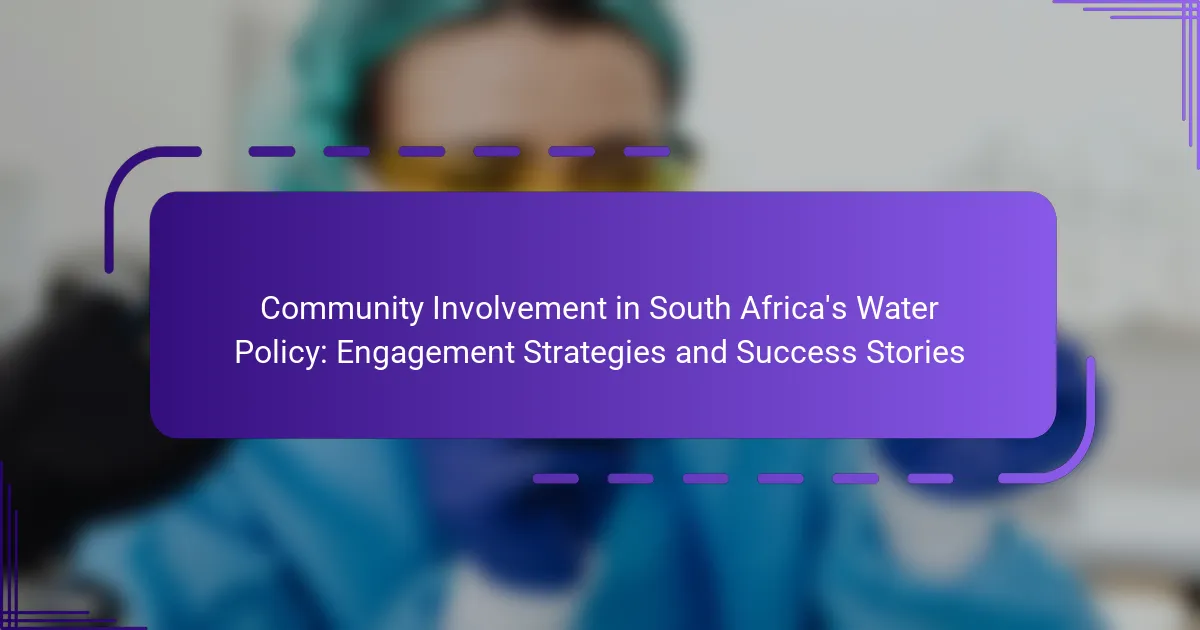
Community Involvement in South Africa’s Water Policy: Engagement Strategies and Success Stories
Community involvement in South Africa’s water policy is the active participation of local communities in the decision-making processes related to water management. This engagement is essential for aligning water policies with the needs of affected populations and enhancing accountability. The South African government, through legislation like the National Water Act of 1998, emphasizes public participation, […]
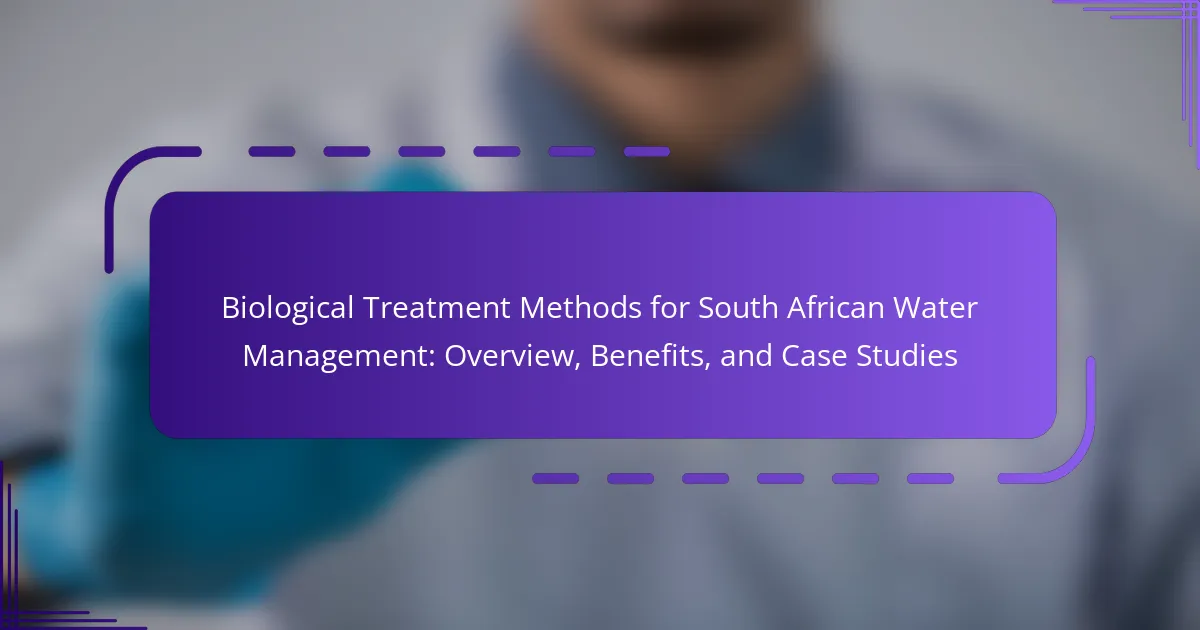
Biological Treatment Methods for South African Water Management: Overview, Benefits, and Case Studies
Biological treatment methods in South African water management involve the use of living organisms to treat wastewater and enhance water quality. Key processes include activated sludge, biofiltration, and constructed wetlands, which effectively reduce pollutants such as biochemical oxygen demand (BOD) and total suspended solids (TSS). These methods are applied in various sectors, including wastewater treatment, […]
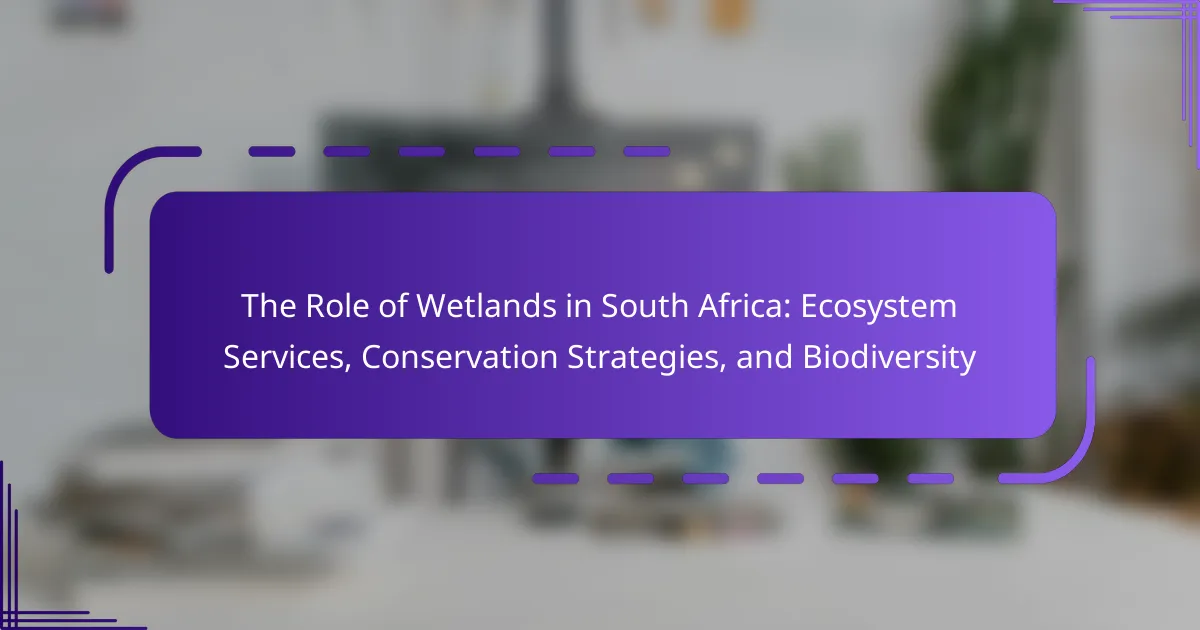
The Role of Wetlands in South Africa: Ecosystem Services, Conservation Strategies, and Biodiversity
Wetlands are vital ecosystems in South Africa, characterized by saturated soils, water, and unique vegetation. They provide essential services such as habitat for diverse species, natural water filtration, flood control, and carbon storage, which contribute to climate change mitigation and food security. However, wetlands face significant threats from urban development, agriculture, pollution, and climate change, […]
